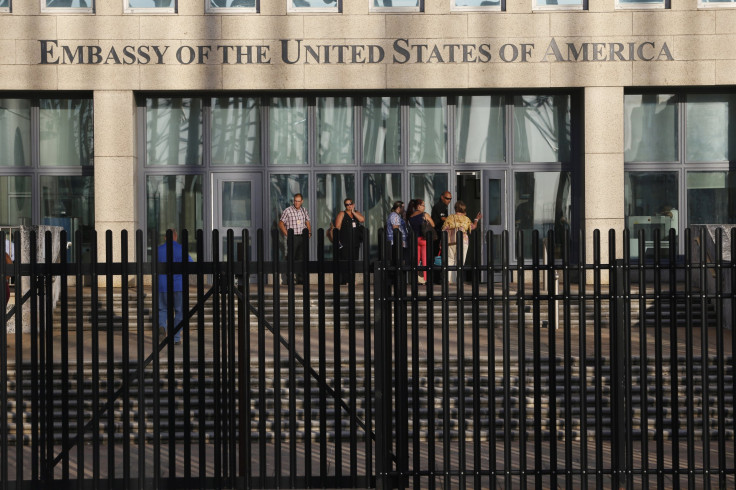What Are Microwave Weapons? US Diplomats In China, Cuba Likely Victims

Microwave strikes may have caused the symptoms and ailments that hit more than two dozen U.S. diplomats and their family members in Cuba and China in late 2016, experts say.
A medical team that examined 21 affected diplomats made no mention of the microwaves in a report submitted in March. However, Douglas Smith, the lead author of the report and the director of the University of Pennsylvania's Center for Brain Injury and Repair, said Sunday microwaves were considered the culprit for the brain injuries.
"Everybody was relatively skeptical at first and everyone now agrees there's something there,” Smith told the New York Times.
In an interview with CNN on Sunday, he said though microwaves were the main suspect, ultrasound and infrasound were also being studied as potential causes.
"It's almost like a concussion, but without a concussion -- meaning that they look like individuals who have persistent concussion symptoms but have no history of head impact," he said, describing the injuries. "Just like we have ways to prevent people from having a concussion, you could think of maybe protecting your brain from these energy sources," he added, explaining the importance of learning the cause to determine the best way to prevent it.
Microwave weapons are used as "directed energy weapons" which are usually airborne and located in aircrafts or drones. These weapons emit energy to destroy, damage or disrupt targeted electronic systems. The weapons are also referred to as high power microwave (HPM) weapons as they deliver energy directly to the target using electromagnetic waves of high power.
Microwaves can penetrate through cloud, dust and water vapor particles and hence the performance of the weapon is not affected by atmospheric conditions. These weapons destroy a wide target area and are considered as area weapons.
The victims had reported hearing intense high-pitched sounds in their hotel rooms or homes followed by symptoms like nausea, severe headaches, fatigue, dizziness, sleep problems and loss of hearing. A senior administration official told CNN investigators checked the hotel rooms and homes but did not find any acoustic devices. This led law enforcement to believe the injuries were a result of microwaves beamed from a nearby location. The “sounds” were a means of hiding the microwave attacks. The official said this was only a theory and there was no concrete evidence to prove it. Brain scans showed changes that indicated damage.
Beatrice Golomb, a professor of medicine at the University of California, San Diego, agreed with Smith. "Reported facts appear consistent with pulsed (radio frequency/microwave radiation) as the source of injury in Cuba diplomats. Non-diplomats citing symptoms from RF/MW ... report compatible health conditions," she said in a paper slated for publication later this month.
"The specifics of the varied sounds that the diplomats reported hearing during the apparent inciting episodes, such as chirping, ringing and buzzing, cohere in detail with known properties of so-called 'microwave hearing,' also known as the Frey effect,” she said in university news release.
According to the Frey effect, named after U.S. scientist Allan H. Frey, microwaves can trick the brain into perceiving what seem to be ordinary sounds.
The U.S. State Department issued a statement June neither confirming nor denying the possibility of microwave attack.
"The health and well-being of our personnel remains our top priority. The investigation into the origin of these symptoms continues. The inter-agency community is working diligently to determine the cause of the symptoms, as well as to develop mitigation strategies,” the statement said.
U.S. held Cuba responsible for either carrying out the attacks or failing to protect American officials. In September 2017, U.S. recalled more than half its staff from the embassy and also expelled 15 Cuban diplomats from Washington. Cuba denied involvement in the attacks.
"There is no credible hypothesis or conclusions adhered to science that justify the actions taken by the government of the United States against Cuba to the detriment of the bilateral relationship," the statement by Cuba said.
In June this year, a health alert was issued by the U.S. for its diplomats in China after they reported similar incidents. The state department said in the alert that an unspecified number of employees stationed in China were being called back to the U.S. for medical testing.
© Copyright IBTimes 2024. All rights reserved.





















